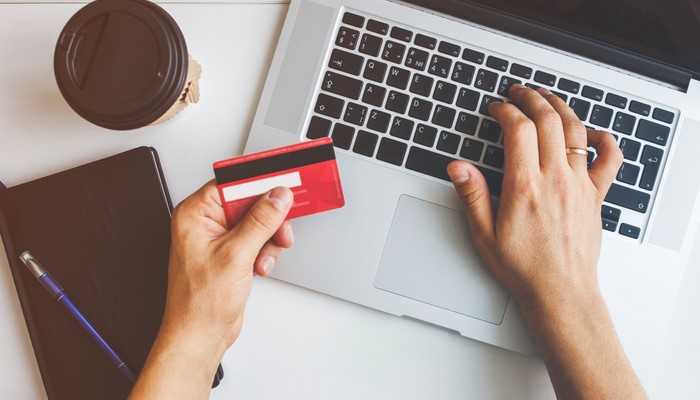Financial health refers to the ability to fulfill your financial obligations and pursue your goals. Being financially healthy means that you can achieve a sense of security (with respect to your financial future) and a responsible and prosperous lifestyle. It also means being relatively prepared for disruptions to your personal financial situation. However, a global pandemic is a financial shock that nobody could predict or expect. Even before the novel coronavirus outbreak, good financial health was already a serious and growing concern. And today’s financial vulnerability comes as a result of the COVID-19 pandemic, spreading negative effects to American households and impacting financial stability.
The financial wellbeing of U.S. households has been negatively impacted by the economic crisis caused by the coronavirus pandemic, and the pain is starting to show. While public health issues and social isolation were concerns, many Americans found themselves more in fear of paying rent, stocking up on toilet paper, and facing income insecurity. Overall, U.S. citizens are reporting rapid and different levels of change in their economic wellbeing since the outbreak first forced everything from non-essential business and school closure to social distancing. Many have had their work hours reduced or lost their jobs entirely, while others started dipping into their savings account and emergency funds as they waited for their unemployment claims and stimulus checks.
Impact of the Coronavirus on Consumer Behavior
Almost every aspect of our lives has been affected by the coronavirus, and consumer spending habits are no exception. The financial impact of the COVID-19 crisis that has caused the unemployment rate to surge has made people less inclined to spend more money on non-essentials, with many expecting their household income to continue falling in the following months. However, time spent indoors has caused us to spend more on other things, such as groceries, medical products, and home entertainment. Let’s take a look at some consumer spending statistics to see how consumer behavior has changed over the last few months.
- According to Adobe Digital Economy Index, online grocery shopping experienced a 110% spike in daily sales in April, while grocery prices stayed in line with previous levels (January-March 2019). Furthermore, the online sales of electronics are up 58%.
- In the first quarter of 2020, consumer spending in Android and iOS apps went up 5% and 15% (respectively), which set a new record for in-app spending for a single quarter – $23.4 billion.
- About 96% of global consumers say that they’re consuming more digital media than ever – 52% are watching more films, shows, and videos on streaming services, and 60% are watching more news coverage.
- According to GlobalWebIndex, 39% of U.S. consumers said they are more likely to buy from independent and local brands. When the COVID-19 outbreak is over, 29% of global consumers said that they would be visiting pubs and bars less often, 31% will be watching movies in theaters less often, and 42% said they’d be eating at restaurants less often. Also, 65% of U.S. consumers will not travel until they feel it is safe to do so; however, vacations are a priority purchase for about 61% of U.S. consumers.
- Going forward, online buying will continue to be a prominent channel for consumer buying. Companies that have not been easily available before must adapt to this “new normal” in order to survive. Consumers will keep turning to delivery services for grocery and restaurant food items.
- Since consumers are expected to continue to reduce discretionary spending, luxury purchases are likely to decline significantly. On the other hand, they are likely to spend above-average amounts on health, food, medicine, and products related to pandemic and disease prevention.
The most important priorities for consumers during the coronavirus outbreak were preserving their physical and mental health, managing stress, being able to pay bills, and getting their savings back on track.
Increased Spending and Credit Card Use
At the very beginning of the virus outbreak, there was a significant surge in online ordering. That initial surge was driven by huge stockpiling of household items and food when it became obvious that people would be spending most of their time at home for the foreseeable future. Items that were frequently bought in bulk included home office equipment, health care products, and pet supplies. When President Trump declared a national emergency, total spending rose by about 50% in late February and early March.
However, in mid-March, the overall spending declined in most categories, except online grocery shopping. In areas where citizens were under more strict stay-at-home orders, these spending patterns were more pronounced.
According to a recent household survey by CreditCards.com, 47% of adult U.S. citizens are now carrying debt on their credit card, which is 4% more than in early March. For many people, credit card debt has become a way of life, especially for those who don’t have a lot of savings (December reports state that 69% of Americans have less than $1,000 in emergency savings). The best advice would be to pay off credit card debt or student loans as soon as possible, but the COVID-19 outbreak has changed that way of thinking. The study done by CreditCards.com shows that:
- 58% of Millennials holding credit card debt are more stressed compared to 34% of Boomers and 49% of Gen Xers. Millennials have been hit the hardest – 34% of Millennials with credit card debt have gone further into the red during the pandemic.
- 45% of all credit card debtors are stressed about their debt, with 30% being somewhat stressed and 15% very stressed.
Missing Credit Card Payments
About 110 million adults in the U.S. entered the pandemic and subsequent slowdown with credit card debt. More than half of them (56%) had been carrying their debt for at least a year. As the pandemic puts them out of work, millions of American citizens are skipping their credit card payments. Banks, lenders, and other financial institutions are also preparing for hardship because they have relied on consumer spending to maintain their profits. Since credit card payments are among the first loans that people stop paying when their income is low, they are one of the first areas where the effects will show up. Usually, these payments are unsecured, meaning that lenders have little recourse once their borrowers stop paying.
Many credit card issuers are letting their clients pause credit card payments for a few months, while some are waiving or lowering interest charges and late fees. These measures will allow people to stay afloat, but that is only temporary. Analysts expect charge-offs and delinquencies to soar later this year. Banks and lenders hope that delaying payments will buy them some time until the economy recovers and consumers get back to their normal lives. However, the thing is that consumer spending has greatly changed these last few months, and the world is expected to return to a “new normal.” Many Americans don’t have any idea when they will get back to work, and millions were already burdened with debt before the pandemic.
Credit Scores Could Nose-Dive
The unprecedented financial effects of the COVID-19 outbreak could get much worse after the national emergency is over. The CARES Act (a stimulus package worth $2.2 trillion) recognizes the financial problems that many U.S. citizens are facing. Lenders who enter into an agreement with borrowers are required to lower minimum monthly payments or delay payments. The credit scores of indebted borrowers will not be lowered if they didn’t have any preexisting delinquencies, which will make things easier for them to secure a mortgage or loan in the short- or medium-term.
After the national emergency caused by the coronavirus crisis comes to an end, people might have a rude awakening from their lenders or credit card companies because the lender could demand full repayment from the credit card holder or borrower. In case they are not able to repay, their credit scores could be affected negatively, making it more expensive or harder for them to take out a mortgage, get a loan, or even get a new job.
As job losses and economic pain caused by the statewide lockdowns continue to take a toll, more U.S. households are experiencing strains on their finances. This also threatens our ability to contain the virus’s spread because people feeling the most financial stress are less likely to seek medical care when they are displaying coronavirus symptoms.
For those who are looking for ways to reduce their financial burden and achieve economic security, the experts at Churchill Credit Solutions are there to provide financial guidance and help you choose a debt relief strategy that fits your financial situation. We can help you assess your financial situation before considering what’s the best way for you to achieve debt relief. Debt settlement has been deemed a viable solution for achieving financial wellness. And besides helping you overcome personal financial crises, it will also remove the daily stress you’ve been dealing with these last few months and allow you to focus on taking care of yourself and your family.
If you need financial counseling, feel free to request it on Churchill Credit Solutions website.



